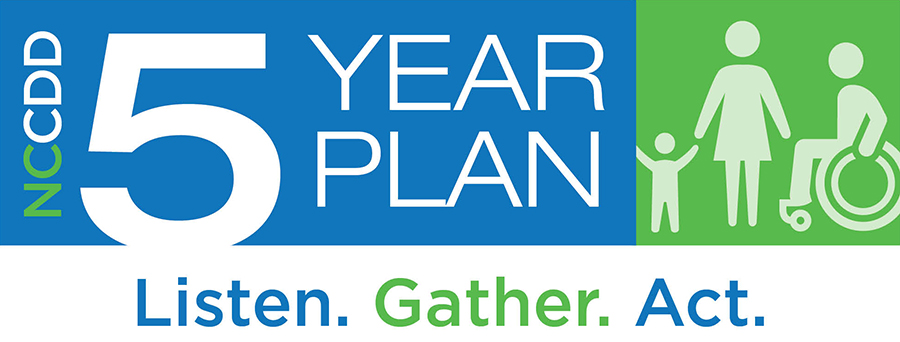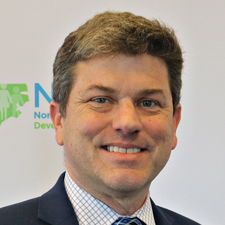August 2020 - Highlights and Hot Topics

Letter from the Executive Director
My son, 16, and daughter, 13, started school in August – virtually. It is going to be a hard year.
We moved during the pandemic to North Carolina. They need to meet other children and socialize. They struggle concentrating in online classes.
Their challenge is the challenge of children and youth across North Carolina. It is also the challenge parents and families face ensuring accommodations for their children with disabilities. And, it is the challenge teachers and schools face as they work to educate.
We must be understanding of the difficulties teachers and schools face during this time. At the same time, we must still ensure that our children with disabilities are receiving the accommodations they need. We also need to ensure our children’s social and emotional needs are met.
Here is a link to important education resources for families of children with disabilities during the pandemic.
We cannot accept “no” as an answer when we seek what our students need. Instead, we need to work with our schools to seek alternative solutions to meet their needs. This means if my son or daughter has a need and the school says we can’t do something because of the pandemic, my next question must be, “What can we think of together that will meet my child’s need?” That is easier said than done when children need one-on-one in-person therapies or other complex accommodations. But this pandemic has taught everyone that there are new ways to accomplish tasks. There are also ways PPE can be used to protect all of us when we need to be together. If the PPE does not exist, then we must advocate to get it.
We won’t be able to think of all the answers on our own. Fortunately, the disability community is a community that works together to find new innovative answers to meet the needs of our children. Even in this difficult year, our kids will not take a year off from growing.
Talley Wells, Executive Director
Public Policy Update as of August 15

STATE UPDATE
NC General Assembly
Last month’s “Highlights & Hot Topics” included highlights from the legislative session. There were several bills which included budget items, but there was not a comprehensive budget bill. Through a series of minibudget bills, funds were allocated to the Department of Health and Human Services (DHHS) for Medicaid, for Medicaid transformation, for LME/MCOS to address budget shortfalls, and for intellectual and other developmental disability (I/DD) group homes to address COVID-19.
Yet, the huge wait list for I/DD services was not addressed in any of the mini-budgets during this session. In addition, cuts to the Department of Transportation included a cut to the Rural Operating Assistance Program (ROAP) that funds transportation in rural areas for elderly people and people with disabilities. The original budget included over $18 million and this was reduced to zero and replaced with $10 million from federal COVID-19 funds.
The legislature will reconvene on September 2 to review revenue numbers, make any needed adjustments, and allocate any additional federal COVID-19 funds.
The Joint Legislative Oversight Committee on Health and Human Services met on August 11. Secretary Mandy Cohen shared a presentation with the committee on use of federal COVID-19 relief funds across NC. At the end of the presentation, the Secretary identified funding priorities moving forward:
- Increasing Access to Health Care
- Supporting NC Providers
- Expanding Prevention Efforts to Combat COVID-19
- Supporting Mental Health and Resilience
- Supporting Rural and Historically Marginalized Populations
- Prioritizing Early Childhood: Responding to COVID-19 /Addressing Leandro
- Protecting and Serving Aging Adults
- Fighting the Opioid Epidemic During COVID-19
- Serving People with Disabilities Close to Home
The highlighted points represent some overlap with priorities of the Council. Addressing the wait list for Innovations and supporting direct support professionals (DSPs) contributes to community living for people with I/DD. The Leandro v. North Carolina case refers to the Supreme Court ruling that North Carolina has a constitutional obligation to ensure all children have access to a sound basic education. The COVID-19 pandemic has further highlighted disparities and gaps that already existed for children and adults with I/DD; and the Council will seek ways to engage in educating policy makers about these critical issues as we move toward the long session of the legislature which begins in January 2021.
DHHS launches #SCOOP tool
According to recent data, the number of North Carolinians experiencing feelings of anxiety or depression has tripled in a given week. Kody Kinsley, Deputy Secretary for Behavioral Health and I/DD, announced a new tool to help manage stress and mental health during this time:
S – Stay connected to family and friends
C – Show Compassion for yourself and others
O – Observe your use of substances
O – Okay to ask for help
P – Physical activity to improve your mood
In addition to SCOOP, the #Hope4NC hotline is available 24 hours a day, 7 days a week at 855-587-3463.
FEDERAL UPDATE
On May 15, the House passed the HEROES Act - a COVID-19 economic relief bill. Highlights include:
- Provide additional support to states for Medicaid, a program on which people with disabilities rely for services and supports.
- $10-15 billion for Home and Community Based Services (HCBS) across a full year. HCBS services include programs like North Carolina’s Innovations and TBI waivers.
- Expanded COVID-19 related paid sick leave that includes all workers, as well as grandparents and siblings who must leave work to care for adults with disabilities.
- A retroactive $500 to dependents left out of the last stimulus payments.
- Funding for employers to keep furloughed employees on health care plans until January 2021
More recently, the US Senate announced their new package of COVID-19 and economic relief, called the HEALS Act. Highlights include:
- An extension of Federal Unemployment Assistance, at a reduced weekly rate with a plan for UI at 70% of lost wages Oct-Dec.
- A second $1,200/$500 per dependent stimulus payment which now includes dependents over age 17.
- Tax credits for unemployment recipients and for companies that retain workers.
- Support for COVID-19 related testing, contact tracing and vaccines, as well as focus on support for prevention of spread in nursing homes; support for *some* healthcare providers, but no increased Medicaid match or support for home and community–based services for I/DD.
- $70 billion in education funding, with 1/3 available immediately and the other 2/3 tied to schools reopening (none tied to IDEA).
The following chart highlights items of interest for the I/DD community and compares the two pieces of legislation:
| HEROES Act | HEALS Act | |
| Additional funding for states’ Medicaid programs | Yes | No |
| Dedicated funding for home and community-based services (HCBS) | Yes | No |
| Maintenance of Effort (MOE) provision | Yes | No |
| Rental Assistance and protection against foreclosure and eviction | Yes | No |
| Immunity from liability | No | Yes |
| Hazard Pay for direct care workers | Yes | No |
The stalemate on negotiations on the two plans now appears likely to drag on for weeks, or even into September. In a sign that negotiators won’t reach an agreement anytime soon, most members of Congress have left Washington for the traditional August recess, with a 24-hour notice to return. Key policy differences include the overall cost of the packages, restoration of enhanced federal unemployment benefits ($600 weekly federal benefit from the March CARES Act expired in July), and funding for state and local governments.
Clock is ticking! Provide Your Feedback by August 31!
 Your input is vital to the North Carolina Council on Developmental Disabilities’ (NCCDD) Five-Year State Plan and we need to hear from you by August 31!
Your input is vital to the North Carolina Council on Developmental Disabilities’ (NCCDD) Five-Year State Plan and we need to hear from you by August 31!
What matters to you as an individual with disabilities, a family member, community member, caregiver and other stakeholders? What are the top issues you face? Your answers will help guide the work of NCCDD on your behalf.
The survey is available in both English and Spanish on the NCCDD website here. Deadline to submit surveys is Monday, August 31, 2020.
Meet Council Member: Victor Armstrong

Victor Armstrong became the Director of the North Carolina Division of Mental Health/Developmental Disabilities/Substance Abuse Services (MH/DD/SAS) within the Department of Health and Human Services (DHHS) in March 2020. He was appointed to the North Carolina Council on Developmental Disabilities (NCCDD) in April of this year by Governor Roy Cooper.
In his position with DHHS, he is responsible for overseeing that disability services are serving all people, that individuals have access to services in their communities when needed and providing oversight of Local Management Entities – Managed Care Organizations (LME-MCOs), among many other duties . “I look at current policies and services to make sure they are aligned with needs and see where we need additional resources,” Armstrong explained.
Armstrong has a Master of Social Work from East Carolina University and a Bachelor of Business Administration from North Carolina Central University where he graduated Magna Cum Laude. With previous work in the healthcare system, Armstrong says, “I take into account the role of hospitals, schools, justice systems – a holistic look,” when addressing issues facing people with both intellectual and other developmental disabilities (I/DD).
Armstrong notes the challenge of providing services is often because “we have historically, in all areas of behavioral health, looked at funding streams and how to make people fit. I want to make funding streams work for people, make them fit the people.”
Currently, Armstrong is a member of the board of directors for the National Council for Behavioral Health and the American Foundation for Suicide Prevention NC. His many awards and recognitions include the 2019 Black Mental Health Symposium - Mental Health Advocate of the Year, 2019 Atrium Health Excellence in Diversity & Inclusion Award, 2018 Distinguished Alumni Award from East Carolina University School of Social Work, Pride Magazine 2018 "Best of the Best", and i2i Center for Integrative Health 2018 Innovation Award for "Whole Person Care", and the 2012 National Alliance on Mental Illness (NAMI) NC, Mental Health Professional of the Year.
An avid weight and power lifter as well as an amateur bodybuilder, Armstrong lives in Charlotte, keeping busy with his three sons ages six, eight and 27. His motto for life is “Be here tomorrow and every day after that.”
Audio - Highlights and Hot Topics

